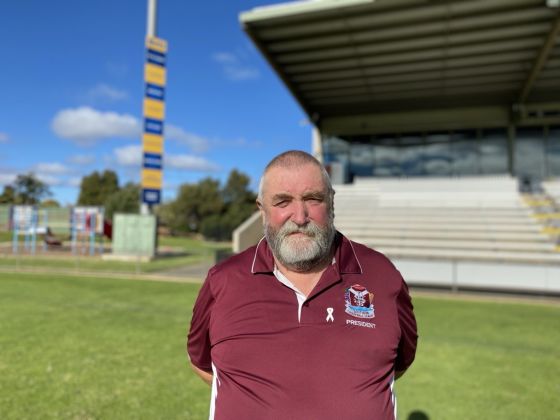Don't become a statistic: Craig's plea to road users

Thursday, 9 May 2024

Retired SA Police Senior Constable Craig Warman has seen horrors on southern roads he hopes others never will.
The cabin of a car crushed in a high-speed head-on collision at Aldinga – single fatality.
Debris strewn 400 metres after an airborne vehicle clipped a truck and slammed into an embankment at McLaren Vale – serious brain injury.
A station wagon sliced lengthways down the passenger side on impact with a stobie pole at Darlington – single fatality.
“Imagine turning up to those scenes,’’ Mr Warman said. “There’s not too much that would shock me now, but there are a lot of things I saw that I wouldn’t want others to see.’’
Mr Warman responded to hundreds of fatalities over 39 years with SAPOL. Based at Christies Beach in the traffic division and highway patrol for two decades, he saw the grim reality of the road toll almost every week at crash scenes across the Fleurieu Peninsula.
“I’m probably one of the fortunate ones in that I can put things to one side, but if you don’t have that ability to blank things out, it can be very traumatic,’’ he said.
“The most difficult thing that a policeman ever has to do is to tell someone their loved one has gone.
"I can remember one of the first ones I did. An 18-year-old lad had come off a motorcycle that his mum didn’t want him to buy.''
“I can still see her coming down the stairs screaming. She knew why we were there – it’s not often a policeman knocks on your door at four in the morning.’’
Mr Warman, who retired in 2013, now draws on his experiences to drive home vital safety messages through the Southern Football League (SFL) in his role as a SANFL THINK! Road Safety Ambassador.
“In one year, you could lose two thirds of a footy team in road accidents, statistically speaking,’’ he said.
“The year I joined the police force, 1974, there were 382 deaths. With the evolution of road safety and the introduction of seat belts, random breath tests and other initiatives, we’ve been able to get it down, but we still have a long way to go.’’
Mr Warman said every serious collision he attended could have been prevented, with the Fatal Five factoring in most road trauma.
“All of them usually relate back to inattention, driving without due care, failing to wear seatbelts, speeding, drink and drug driving - you can put them all into those categories,’’ he said.
“Fatigue too, it’s not a crime but it can be just as dangerous. I think of one crash, a young man, he was driving home after work from up north, tired, and hit a stobie pole at Darlington.
“He was that close to home, his family would have heard the impact.
"That old story about driving with the window down, loud music, singing …no, no. no. There’s only one way to beat fatigue – rest.''
Mr Warman said driving on a regional road comes with a different set of challenges including unsealed surfaces, reduced visibility, and higher speed limits.
“There are a lot more things to hit out there – wandering cattle, sheep, kangaroos, emus … the whole box and dice. You don’t have to go too far outside of Adelaide for those to be a factor,’’ he said.
Mr Warman, longtime SFL President, said football clubs were a powerful space to share road safety messages across generations.
“We run from Under 7s right up to seniors, so we have got a really good catchment of people we can speak to about these issues,’’ he said.
“Road safety is everybody’s responsibility and unless you are prepared to accept that responsibility, you could become a statistic.
It’s a privilege to hold a licence in this state, not a right.
Mr Warman said road trauma impacted everyone around a victim, from witnesses, family, friends to the broader community.
“It’s not just the immediate family, it’s the extended family and when it happens in a football environment, it has an impact on the whole league.’’
He highlights the loss of three teenagers in a crash on Victor Harbor Road in 2010.
“That’s one of the ones that did really get to me,’’ he said.
“Three great footballers and mates gone. I knew the lads, because they played association football with us. Once I’d finished at the scene, I went to the hospital and was met by distraught parents walking through the door.
“They said, ‘what’s going on?’ and I had to tell them then and there.’’
The theme for this National Road Safety Week is ‘Drive so others survive’ to reduce the incidence of road trauma.
Mr Warman’s plea this week is for people to stop, think and accept the responsibility that comes with having a driver’s licence.
“I always tell the young people it’s a bit like the games they play.
"Life gives you one chance and if you do something stupid, it’s game over. There’s no reset button – you’ve got to live for the moment.''